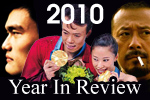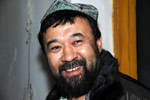View
The G7 itch in G20 times
Updated: 2011-02-18 08:17
By Dan Steinbock (China Daily)
Since its summit in Seoul, G20 has been increasingly criticized in the West. But with the shift in economic and political power from the West to the East, G20 reflects inclusive growth.
On Feb 18 and 19, finance officials of the world's 20 leading economies and representatives of international financial institutions will gather for the first high-level meeting under France's yearlong G20 presidency. The meeting takes place amid sluggish recovery in the advanced economies and broader growth in the large emerging economies. It also comes when the debate over G20's role has intensified.
French President Nicolas Sarkozy has laid out an ambitious agenda for the G20. The 20 economies' finance officials hope to tackle the eurozone's debt crisis, currency policy, financial regulation, the representation of non-G20 countries at future meetings, and a slate of other economic problems plaguing rich and developing countries alike.
But conflicting interests between the G20 countries constrain dramatic changes over issues in which trillions of dollars are at stake. If the French are hoping for the seemingly unattainable, some Americans are hoping for nothing - or so it seems.
We are now living in a "G-zero world", in which no single country or bloc of countries has the political and economic leverage, or the will, to drive an international agenda, argue Ian Bremmer, president of Eurasia Group, and Nouriel Roubini, a professor at New York University's Stern School of Business. Because of that they see "intensified conflict on the international stage over vitally important issues, such as international macroeconomic coordination, financial regulatory reform, trade policy and climate change".
Ironically, Roubini is among the few experts who earlier predicted that the West would be swept by a global financial crisis, while Bremmer warned about instability in the developing world. Now, both are looking nostalgically to the very same regime - the Washington Consensus - that contributed the most to the global financial crisis in the first place.
The problem is not just the difficulty of cooperation among the G20 countries. Rather, it is that these countries have in the foreseeable future the unfortunate task of cleaning the mess created by G7 nations, a small group of advanced and prosperous economies.
Since G20 represents advanced and emerging economies both, it is bound to be driven by diverging interests and values. As a result, progress is likely to be gradual rather than disruptive.
Starting in the mid-1970s, leaders from G7 have gathered annually to discuss and coordinate financial and economic policies. In the 1990s, large emerging-market economies, first China and later India, began to enjoy more sway in the world economy, while the Asian financial crisis demonstrated that emerging economies were simply too important to be excluded from international economic discussions.
G20 was formed formally in 1999 as a platform for finance ministers and central bank governors of both developed and emerging economies to discuss financial issues. But it remained a less prominent forum than G7.
The door to global decision-making was opened to emerging economies only in 2005, when former UK prime minister Tony Blair invited China, Brazil, India, Mexico, and South Africa to participate in the G8 discussions (G7 plus Russia).
But even then the five developing economies were not regarded as full participants. As Brazil's finance minister said then, developing nations were asked to join the G8 table "only to take part in the coffee breaks".
It was the global financial crisis that left the West with no other choice but to invite the emerging economies as fully equal participants even at the highest level. As vital contributors to the global economy and growth, emerging economies were too important to be kept away from the room.
Realistically, the transition from G7 to G20 for economic issues will be neither smooth nor fast. A larger and more inclusive group will not only foster the scope of cooperation, but can also reduce the effectiveness of the group. There are a few reasons, however, for feeling nostalgic about G7.
Had the global crisis not struck, the net debt-to-GDP ratio of the G7 economies would have reached 200 percent by 2030 and exceeded 440 percent by 2050.
To argue in such circumstances, as Bremmer and Roubini do, that the new G20 era "is more likely to produce protracted conflict than anything resembling a new Bretton Woods", amounts to longing for a disaster that was barely avoided.
G7 nations have always considered (and believed) that promotion of "democracy" in developing economies is more important than democratic participation of all the countries in global decision-making.
In the next two decades, economic and political power will shift from the advanced economies to the emerging world; from the West to the East. But the most vital international organizations - the World Bank, the International Monetary Fund, and the UN - were established by the G7 nations amid the Cold War.
Today, these international organizations remain the relics of a bipolar world in an increasingly multipolar era. So, in order to achieve true, inclusive change, they must better reflect the era they live in and the countries they seek to represent. It is only then that G20 - or any other inclusive grouping of advanced and emerging economies - can deliver its full promise.
The author is research director of International Business at the India, China and America Institute, an independent think tank in the US, and visiting fellow at Shanghai Institutes for International Studies.
Specials

Spring Festival
The Spring Festival is the most important traditional festival for family reunions.

Top 10
A summary of the major events both inside and outside China.

A role model
Alimjan Halik had been selected as the "Cyberspace Personality Who Moved the Hearts of the Chinese in 2010".